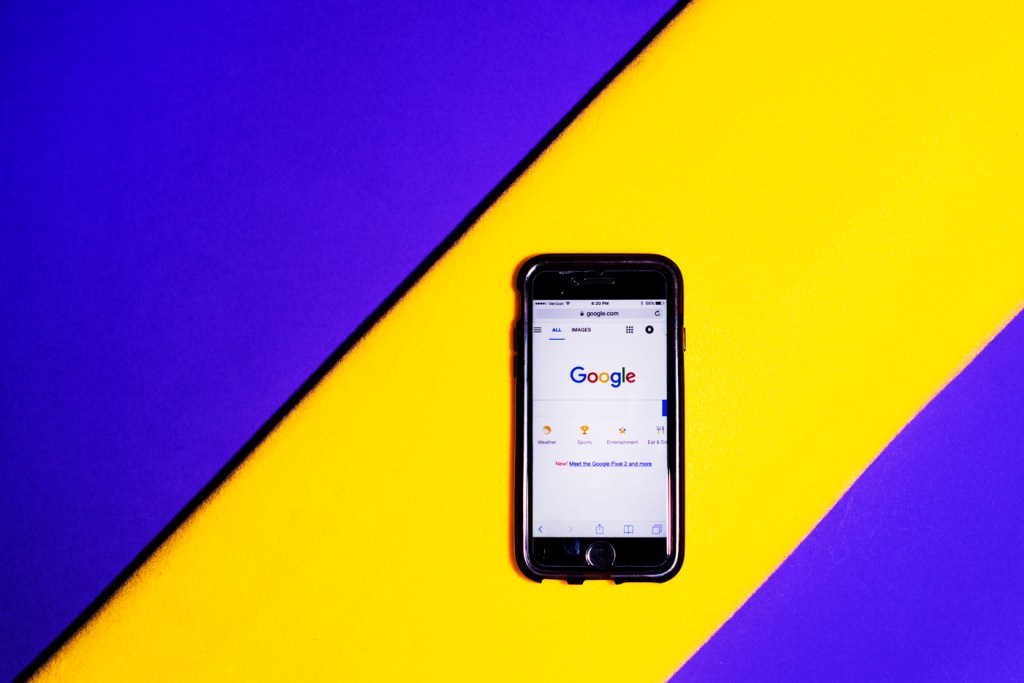Before Trump’s angry tweet, he should have searched Google for Northeastern’s research

Before complaining to his 54 million Twitter followers about his treatment on Google, president Donald Trump could have resolved his issues by reaching out to Christo Wilson.
Google search results for “Trump News” shows only the viewing/reporting of Fake News Media. In other words, they have it RIGGED, for me & others, so that almost all stories & news is BAD. Fake CNN is prominent. Republican/Conservative & Fair Media is shut out. Illegal? 96% of….
— Donald J. Trump (@realDonaldTrump) August 28, 2018
Wilson, an associate professor of computer and information science at Northeastern, was part of a Northeastern research team that already looked into Trump’s assertion that Google has been suppressing news from conservative outlets. In a paper published in April, the researchers investigated whether Google was “personalizing” its political news searches. It’s no secret that Google steers products and services to users based on their online history. The researchers wanted to know if a similar algorithm was applied to news searches.
“Let’s imagine that I was very conservative: From the websites I visit and the things I search for, in theory, Google could then personalize the search results,” said Wilson, who studies security, privacy, and transparency on the web. “The concern is that this traps me in this bubble, that I never see any sort of other information, other facts.”
Did that partisan bubble actually exist on Google searches? In a span of five weeks following Trump’s inauguration in January 2017, a diverse sample of 187 participants used their own computers to run a Chrome extension that had been created by Northeastern’s researchers. The software asked the same questions on two browsers—one in normal mode, with full access to cookies, and the other incognito, with no personal history.

Christo Wilson. Photo by Mariah Tauger.
“The idea is that in your normal browser window, it’s really rich information,” Wilson said. “If they were going to personalize, that’s where it would happen.”
It didn’t happen. The researchers found little difference in the results between the public and private browsers. “We’re talking maybe one or two changes on the page at most,” Wilson said.
The experiment was conducted by Wilson, David Lazer, Distinguished Professor of Political Science and Computer and Information Science at Northeastern, and Ronald E. Robertson, a student in Northeastern’s Network Science PhD program. They asked participants about their political ideologies and feelings for Trump. “There really were not significant differences between Democrats and Republicans for all these political and news queries,” Wilson said. “We’re all seeing the same stuff.”
While the news media is routinely accused of bias, Google has remained above the fray of political polarization. “There’s been some interesting survey work on this recently,” Wilson said. “People really, really believe the results that they see on Google. They don’t see it as a partisan lens; they see it as a way to get the best and the most accurate information.”
Google keeps its complex algorithm secret. The company said in a statement that its searches were “not used to set a political agenda and we don’t bias our results toward any political ideology.”
“Google is a very powerful media organization, and part of the reason that I study them is because we have to critically examine their role in politics and the media,” Wilson said. “That’s a legitimate thing to do, and there’s absolutely criticism to be had there. But the current accusation that they’re so liberal and they’re silencing all dissent from conservative voices—that’s a bridge too far. It’s just not true.”
Larry Kudlow, the director of the National Economic Council, said Tuesday that the White House was “taking a look at” increasing regulation for Google. Will the president’s claims threaten Google’s nonpartisan behavior by forcing the search engine to include more conservative voices at the top of its results? Wilson was confident that this too shall pass: “I think Google will probably be OK.”






